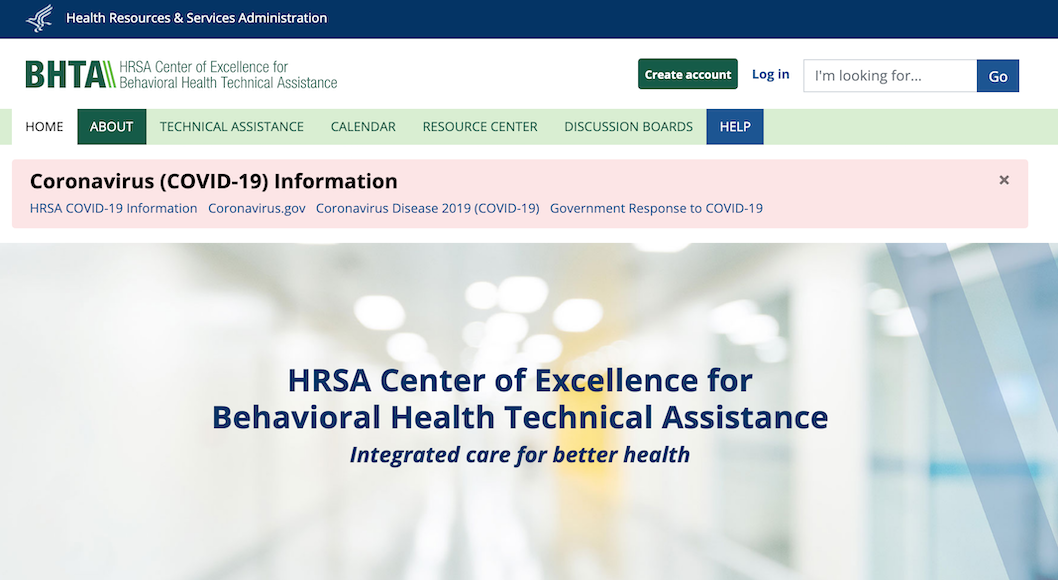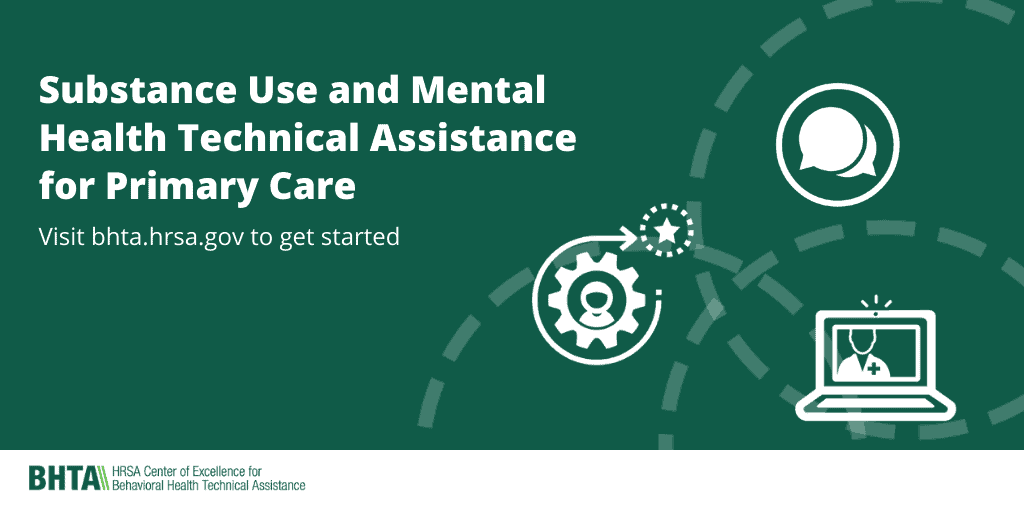The HRSA Center for Excellence Behavioral Health Technical Assistance (COE for BHTA) was a centralized training and technical assistance center to support HRSA-funded grantees to integrate substance use and mental health (behavioral health) services in primary care settings. Integrated behavioral health and primary care services lead to better health outcomes for people with multiple health care needs. Through the Center, each HRSA bureau (Bureau of Primary Health Care, Bureau of Health Workforce, Maternal and Child Health Bureau, and HIV/AIDS Bureau) provided free tailored technical assistance opportunities to its grantees to support integrated behavioral health.
Eligible grantees were invited to create an account on the website to access their tailored technical assistance offerings.
Nationally, one in five individuals lives with mental illness or addiction, a statistic that is on the rise due to increasing numbers of people who struggle with opioid misuse. In its continued effort to support the health care needs and reduce the increasing opioid misuse rates, the Health Resources and Services Administration (HRSA), an agency of the U.S. Department of Health and Human Services, established the HRSA COE for BHTA in 2019 for its own HRSA-funded recipients.
JSI managed the HRSA COE for BHTA along with a national team of experts that includes: The National Council for Behavioral Health, Advocates for Human Potential, the Bizzell Group, the National Health Care for the Homeless Council, and Ten Mile Square.
The Center focused on various priority topics related to integrated behavioral health and primary care, including:
- Initiating and sustaining medication-assisted treatment programs for opioid use disorders (OUD) and other substance use disorders (SUD)
- Workforce training and knowledge enhancement
- Building systems of care
- Financial sustainability for providing integrated behavioral health and primary care
The HRSA COE for BHTA training and technical assistance offerings supported HRSA’s promotion of learning health systems. In a learning health system, evidence and experience are used to improve local practices and inform system-wide enhancements. As a result, patients receive higher quality, safer, more efficient care.
Training and technical assistance for HRSA grantees included:
- Communities of Practice: Structured virtual learning sessions to engage participants in organizational process improvement with their team, other participating organizations, and subject-matter experts.
- Practice Transformation Coaching: Virtual and onsite tailored coaching on behavioral health integration topics and needs.
- Virtual Clinical Case Conferencing: Weekly virtual sessions (ECHOs) to present patient cases for clinical feedback and assistance on behavioral health integration strategies from expert faculty and peers.
- Virtual Technical Assistance: Responsive resources, phone and web-based consultations with subject-matter experts on all aspects of behavioral health integration, and referral to other COE for BHTA offerings.
- Webinars: Virtual presentations to highlight innovations in the field and priority topics.




